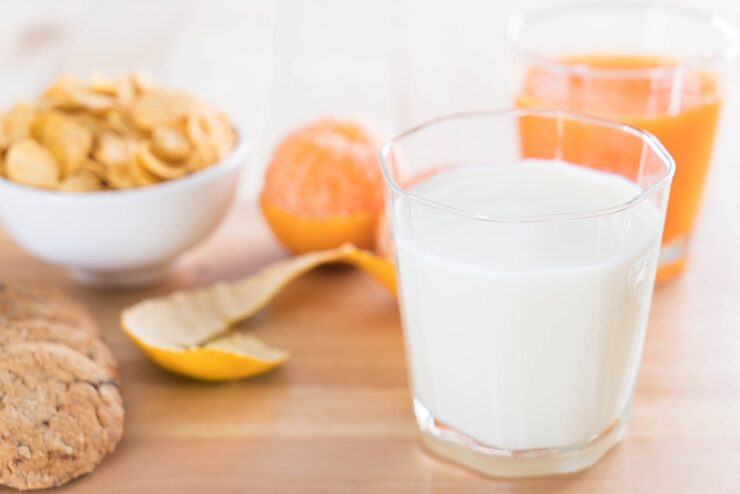Yakult is a probiotic yogurt drink that has become popular among people focused on health. With probiotics known for supporting gut health and overall wellbeing, many are curious about trying Yakult. Yet, information about its benefits and possible side effects sometimes conflicts. To help you decide if it’s right for you, here’s a clear summary of what Yakult is and what it may do.
Yakult was first made in Japan and is produced by fermenting skimmed milk with a specific strain of lactic acid bacteria called Lactobacillus casei Shirota, discovered by Dr. Minoru Shirota in 1930. The main ingredients are water, non-fat milk, sugar, and that L. casei Shirota strain. A 65 ml bottle has around 43 calories and contains no fat, gluten, or cholesterol.

There are two main versions: Yakult Original and Yakult Light. Both contain the same amount of L. casei Shirota, but Yakult Light adds vitamins D and E, has less sugar, and contains about 27 calories per 65 ml bottle. That makes Light a lower-calorie choice if you don’t mind it being less sweet. Some studies suggest combining vitamin D with probiotics can give better results than taking each alone, but it’s not certain how much extra benefit the added vitamins provide.
Health benefits
Research increasingly supports several possible health benefits from the probiotic in Yakult. These include better digestion, stronger immune response, improvements in some mood measures, potential heart-health effects, fewer infections, and fewer flare-ups of IBS-like symptoms.
Digestion: Regular Yakult consumption has been shown to help digestion by introducing beneficial bacteria that aid food breakdown and nutrient absorption. These bacteria can help restore balance in the gut, which may be disturbed by poor diet, stress, or medications. A six-week study in older adults reported relief from constipation and diarrhea and improved stool consistency, with no adverse reactions.
Immune support: The L. casei Shirota strain appears to stimulate T cell activity, which is important for immune responses. Probiotics in general have been studied for their ability to help the immune system and may reduce how often and how severely some people catch colds.
IBS: Managing IBS varies by person, but probiotics can be helpful for some. One study found L. casei Shirota produced a modest but meaningful improvement in IBS symptoms.
Mental health: Growing research links gut bacteria to mood and stress. A promising study showed that the L. casei Shirota strain might reduce stress-related responses in healthy people facing stressful situations, suggesting a possible role for probiotics in supporting mental wellbeing.
Infections: Yakult’s probiotic may lower the risk of upper respiratory tract infections (URTIs). Studies in athletes and in healthy middle-aged office workers found fewer URTIs with regular intake of L. casei Shirota.
Heart health and metabolism: Some research suggests that certain probiotics, including L. casei Shirota, can help reduce metabolic issues tied to obesity—like cholesterol—and may lead to modest drops in blood pressure. Effects vary by probiotic strain, so strain choice matters.
Lactose intolerance and yeast infections: A four-week trial showed that L. casei Shirota improved symptoms of lactose intolerance, with benefits lasting for months after stopping supplementation. The LcS strain has also shown antifungal action against Candida species, reducing Candida growth significantly in one study, which could help with yeast infections.
Side effects and precautions
Yakult is generally well tolerated. The most common minor effect is temporary bloating as your gut adjusts to more good bacteria; reducing the amount you drink can help. Allergic reactions are rare but possible—watch for any signs of an allergy and seek medical advice if needed.
Intake and timing
Adults are usually advised to have one to two bottles of Yakult per day. Children and toddlers should have no more than one bottle a day. People with diabetes or known allergies should monitor their intake and talk to a healthcare provider if they have concerns.
Yakult can be consumed any time of day, but taking probiotics on an empty stomach can improve their effectiveness. Many people choose to drink it in the morning, about 30–60 minutes before breakfast. Avoid drinking it right after hot beverages like coffee or tea, since high temperatures could reduce the number of live bacteria—so it’s best to drink Yakult before any hot drinks.
Bottom line
Yakult is a convenient source of a well-studied probiotic strain that may help digestion, support the immune system, reduce some infections, and even support mood in certain situations. Side effects are rare and usually mild, but people with diabetes or allergies should take care. If you’re thinking of adding Yakult to your routine, consider discussing it with your healthcare provider to find the best approach and timeline for results.
More articles about Yakult:
Is Yakult Good for Weight Loss?